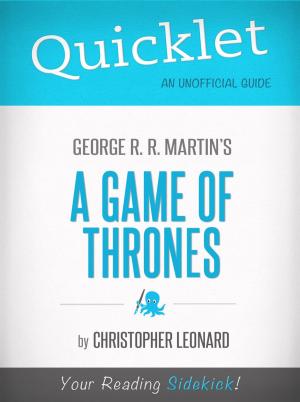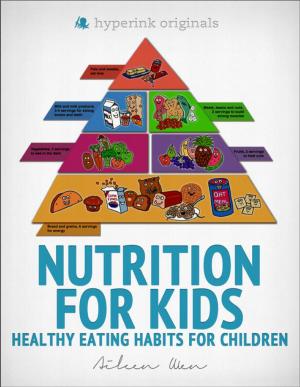How To Lose Weight With The Mediterranean Diet
Nonfiction, Reference & Language, Reference, Guides & Handbooks| Author: | Joseph Pritchard | ISBN: | 9781614645634 |
| Publisher: | Hyperink | Publication: | February 29, 2012 |
| Imprint: | Hyperink | Language: | English |
| Author: | Joseph Pritchard |
| ISBN: | 9781614645634 |
| Publisher: | Hyperink |
| Publication: | February 29, 2012 |
| Imprint: | Hyperink |
| Language: | English |
ABOUT THE BOOK
One potential diet that has recently come to light is the Mediterranean diet. The Mediterranean diet is a dietary program that follows the traditional eating habits of Mediterranean countries like Italy, Greece, and Spain. The diet focuses on plant-based foods, while avoiding large amounts of meat and carbohydrates. There are a variety of benefits provided by the Mediterranean diet, but the diet program does not emphasize weight loss. However, one can lose weight while on the Mediterranean if certain guidelines and lifestyle changes are followed.
MEET THE AUTHOR
Joseph Pritchard is passionate reader and writer. He has a bachelor's degree in Biology and also completed a degree in medicine. He has written for other prominent online publications and enjoys writing on a variety of topics.
EXCERPT FROM THE BOOK
However, if a patient is still gaining weight while on the Mediterranean diet, he or she is still at risk of suffering from a potentially lethal cardiovascular disorder, like a stroke or a heart attack. Overweight patients must be able to lose weight when using the Mediterranean diet. To achieve weight loss, the Mediterranean diet must be tailored to suit the patient's needs.
The Mediterranean diet program does not specify how many calories to ingest nor the amount of food you should ingest. Rather, it only specifies the types of food that are part of a healthy Mediterranean diet. Therefore, in order to lose weight, a patient must identify how many calories he or she should ingest. Determining the number of calories a patient requires is often a complex process that involves calculating basal metabolic rate (BMR) and exercise level.
BMR is a value that correlates to how many calories your body consumes while at rest or while performing simple tasks. BMR is calculated using the patient height, age, gender and current weight, and whether the patient suffers from any metabolic or other disorders...
Buy a copy to keep reading!
ABOUT THE BOOK
One potential diet that has recently come to light is the Mediterranean diet. The Mediterranean diet is a dietary program that follows the traditional eating habits of Mediterranean countries like Italy, Greece, and Spain. The diet focuses on plant-based foods, while avoiding large amounts of meat and carbohydrates. There are a variety of benefits provided by the Mediterranean diet, but the diet program does not emphasize weight loss. However, one can lose weight while on the Mediterranean if certain guidelines and lifestyle changes are followed.
MEET THE AUTHOR
Joseph Pritchard is passionate reader and writer. He has a bachelor's degree in Biology and also completed a degree in medicine. He has written for other prominent online publications and enjoys writing on a variety of topics.
EXCERPT FROM THE BOOK
However, if a patient is still gaining weight while on the Mediterranean diet, he or she is still at risk of suffering from a potentially lethal cardiovascular disorder, like a stroke or a heart attack. Overweight patients must be able to lose weight when using the Mediterranean diet. To achieve weight loss, the Mediterranean diet must be tailored to suit the patient's needs.
The Mediterranean diet program does not specify how many calories to ingest nor the amount of food you should ingest. Rather, it only specifies the types of food that are part of a healthy Mediterranean diet. Therefore, in order to lose weight, a patient must identify how many calories he or she should ingest. Determining the number of calories a patient requires is often a complex process that involves calculating basal metabolic rate (BMR) and exercise level.
BMR is a value that correlates to how many calories your body consumes while at rest or while performing simple tasks. BMR is calculated using the patient height, age, gender and current weight, and whether the patient suffers from any metabolic or other disorders...
Buy a copy to keep reading!















